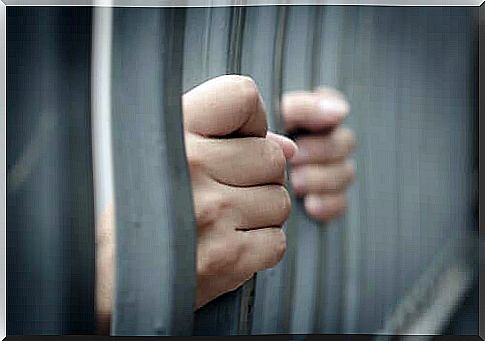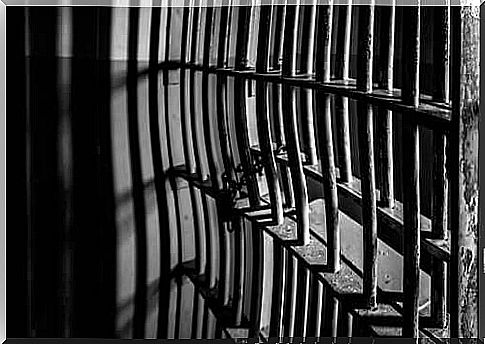The Social Worker In Prisons

The social worker is a key figure in a prison. They are there to realize the objectives of the constitution. While you may not know it, the United States’ incarceration rate is the highest in the world at 716 per 100,000 people.
The prison population there now stands at almost 2,298,300 inmates. Taking into account the constitution, prison sentences and security measures should be aimed at social reintegration.
Mercedes Gallizo, a Spanish politician, stated: “Spanish society has known for more than three decades that prisons could not be mere spaces of exclusion. For this reason, our prison system is focused on reintegration and should be based on respect for the rights of persons deprived of liberty.
Without denying the intimidating effect of deprivation of liberty, the greatest effectiveness is achieved when, in addition to incarcerating offenders, they also receive the kind of education that will enrich them with skills.
This is so that they can reintegrate into society in the future and survive without resorting to crime. ”
Similarly, in an interview in the newspaper El País in 2005, Gallizo says: “The time has come for society to overcome the idea that prisons are the inevitable fate to which all people who violate criminal norms are bound. This is no longer reasonable.”
While we are going through a complicated time regarding the functioning of the judiciary, we must remember that while there are no further changes, we must abide by the current penal code. So not to forget that the Declaration of Human Rights must be observed, there is the prison sentence.
Objectives of the social worker and their guiding principles

Contrary to popular belief, the main purpose of depriving a person of liberty should be to rehabilitate him and prepare him for a future life in freedom. They must learn the social norms and mandate of laws through all educational, technical and professional means.
In order to achieve the objectives, those responsible must take into account the following principles:
- individualization.
- Obtaining a degree.
- Treatment in prison.
- The fulfillment of a sentence in which the prisoner has a social core.
- Communication with the outside world and permission for leave.
The role of the social worker in prisons
This discipline is somewhat new in the penitentiary field. The social worker is a professional who acts as a link between a penitentiary and the outside world.
Above all, they fight to prevent the uprooting of a person deprived of his freedom and act as an ‘intermediary’ between them and their close social and family environment.
They are part of the treatment board. This team also consists of other professionals, such as:
- The deputy director of treatment services.
- Social re-entry centers.
- The medical assistant director or head of medical services.
- The deputy director of the social reintegration center.
- A pedagogue or coordinator of the center for social inclusion, who mediates in the proposals.
- The head of services.
The following functions of the social worker in prisons stand out:
- Conduct evaluations for work leave, study leave, special and residential permits.
- Preparation of reports to manage the probation service, for the awarding of rewards through the progressive table of leave permits and the division into periods of the technical progressive system, as well as for all intramural activities.
- In addition, all of these functions must include visits to businesses, educational centers, and victims or relatives. This also includes visits to the residence of the said prisoners, depending on the type of procedure to be carried out.
- They should also provide follow-up and guidance.
The role of the social worker in education in incarceration contexts

The discontent of society as a whole when it comes to the results of the sentences imposed by the courts is undeniable. Something doesn’t seem to work there. Such failures or shortcomings are quite obvious in some cases. The cases in which the system fails always make the news.
Let us emphasize the importance of the discipline of social education in prisons. While these institutions may appear to be an unfavorable educational environment, the system must provide new opportunities for their inmates. Especially those with a proactive attitude, who want alternatives to face the future positively.
It is a complex and challenging task where different functions come together in one way or another. Somehow people look to education in anticipation of answers. This happens despite the tendency to ‘therapeutize’, ‘medicalize’ or ‘make psychiatric’ any criminal act.
This excludes the educational specialist intervention, however, because the will to change one’s life and the relevance of the educational relationship that will drive the change are no longer considered.
The educational and recreational actions must therefore be aimed at making detainees aware of the development of their lives outside that environment.
They should also aim to enhance the sense of belonging to society and carry out activities that promote the common good. These tasks can of course entail a change in the perspective of the own reality of those involved.
How can social studies help?
Social education can provide many benefits, such as working on:
- Social skills.
- Prevention of drug addiction.
- Literacy programs.
- health education.
- Job training and implementation that facilitate the integration of social work.
- Civic education or civics for all.
In short, while promoting work in prisons is a serious challenge, ultimately it is essential to the success of the system to provide people with values, skills and strengths that allow them to live life in freedom, in society and in an integrated way. able to cope.
We must certainly not forget that successful rehabilitation also benefits the rest of the population.









